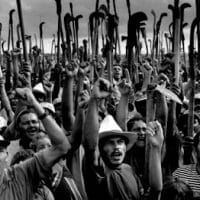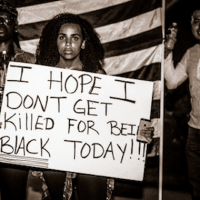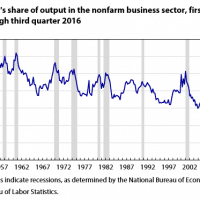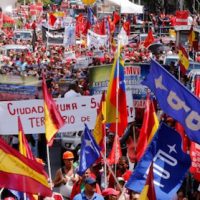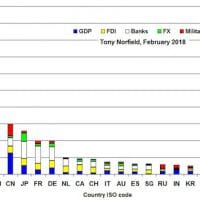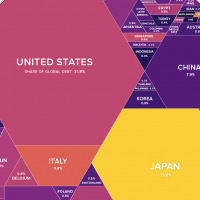-
Movements of millions say no to gene drives as Brazil attempts to legalize genetic extinction technology
The largest rural movements in Brazil, representing well over a million farmers, are protesting a new Brazilian regulation that would allow release of gene drives, the controversial genetic extinction technology, into Brazil’s ecosystems and farms.
-
How the anti-democracy movement use media to command the narrative
As far back as 1835, perhaps our nation’s earliest and most astute observer, Alexis de Tocqueville, understood the power of the media. He described the press as “the chief democratic instrument of freedom.” But today our “instrument of freedom” seems to mean the freedom to enrich oneself privately, whatever it takes. How did we get to this sad state?
-
There is no such thing as a natural disaster
“Policies aimed at aid and reconstruction became their own forms of punishment, leaving the island more indebted, unequal, dependent and polluted than it was before the hurricane hit.”
-
The origin of the millennial label (and how mainstream media fails to point it out)
Here’s an experiment for you-ask five people if they know where the “millennial” label came from. Chances are that none of them will know. In fact, not much is known about the meaning of the label, other than it being a synonym for “young people” or a catch-all term for those who are “x-to-x” years old.
-
Is equality enough?
Race/isms Book Forum is a new series aimed at bringing established and emerging voices together in conversation around recent work that critically engages our world’s racial scripts, past and present. The structure of the forum is straightforward. We invite three to four thinkers to grapple with a book, highlighting a section of it, and then provide the author(s) an opportunity to respond however they see fit.
-
‘Black Panther’ is not the movie we deserve
Even in a comic-book movie, black American men are relegated to the lowest rung of political regard. So low that the sole white leading character in the movie, the CIA operative Everett Ross (Martin Freeman), gets to be a hero who helps save Wakanda.
-
Globalization and U.S. labor’s falling share of national output
The decline in the payroll share of output is class power at work: unfortunately theirs, not ours.
-
Janus and fair share fees
Over the last decade, a number of cases attacking the rights of public-sector union members have been quietly working their way through the courts and, finally, up to the U.S. Supreme Court.
-
School shooting: a U.S. epidemic
How does the rate of school shootings in the U.S. compare with countries where is more difficult to obtain guns?
-
Why is there always an economic crisis of some sort?
Unlike liberal economists, Marxists explore the primary role of internal contradictions within the capitalist economy. The MARX MEMORIAL LIBRARY explains why.
-
The U.S. military will have more robots than humans by 2025
Armed with a budget of over $700 billion for the coming year – which will likely continue to grow over the course of Trump’s Pentagon-controlled presidency — the Pentagon’s dystopian vision for the future of the military is quickly becoming a question not of if but when.
-
Escalation of imperialist aggression against Venezuela
Venezuelanalysis republishes this analysis of the current conditions in Venezuela from Lucha de Clases, in which they call for deeper revolutionary measures as a way out of the current economic crisis.
-
We’re #2!
According to the Tax Justice Network, the United States ranks second in the 2018 Financial Secrecy Index. This is based on a secrecy score of 59.8, which is practically unchanged from 2015. The only country ahead of the United States is Switzerland, with a secrecy score of 76. The rise of the United States continues a long-term trend, as the country was one of the few to increase their secrecy score in the 2015 index.
-
Missing Shulamith and the dialectic of #MeToo
I was 24 years old in 1970, when I read Shulamith Firestone’s The Dialectic of Sex, a year younger than she was when she wrote the book. The book catapulted me from the limitations of the Left organization of which I was a member into the world of Women’s Liberation. There was no going back once I saw and felt the chauvinism of the Left, how women’s issues were seen as tangential to the more important priorities of “real” radical politics, rather than seeing feminism as “central and directly radical in itself.”
-
Conservative-led anti-protest legislation already doubled since last year
Last March, the NLG shared an overview and analysis of the wave of anti-protest legislation sweeping state legislatures across the country. At the time, we were looking at 25 bills proposed in 19 states—all focused on limiting the right to protest or removing liability for harm caused to protesters. One year later, the number of anti-protest bills has reached 58 in 31 states with no end in sight.
-
Index of power
he overall picture shows a small number of countries, led by the U.S., towering over the rest. Only 33 countries out of 180 have an index that is more than 1% of the U.S. index number! In the chart, the columns for these would look like the x-axis, so I have shown just the top 20 countries. Of those, only five are close to or above 20% of the U.S. number: the UK, China, Japan, France and Germany.
-
From Marx Reloaded to Marx Returns
You made Marx Reloaded in 2011, after the financial crisis and a return of Marx in particular and of the critique of capitalism in general. What do you think today, 10 years after the crisis, is the outcome of this return?
-
Not a matter of if, but when
The capitalist crisis will deepen as new bubbles created by easy money begin to burst.
-
There is no such thing as a natural disaster
“Instead of considering these [events] as natural disasters we should be calling them humanitarian disasters with a natural trigger, where this natural trigger ignites and exaggerates the structural inequalities that capitalism produces along racialized, gendered, and class lines.”
-
Driverless trucks are wiping out jobs
Driverless trucks are on the way sooner than most workers realize, as corporations seek to raise profits by cutting labour costs. Media reports indicate that investors and researchers agree that tech change in the trucking industry will soon replace 1.7 million jobs in the U.S., where trucking was the most common job in 28 states in 2014. Some predict that pay rates for the remaining human drivers will fall rapidly from the current average annual of $42,500. The jobs of another 1.7 million taxi, bus and delivery vehicle drivers are also at stake.

